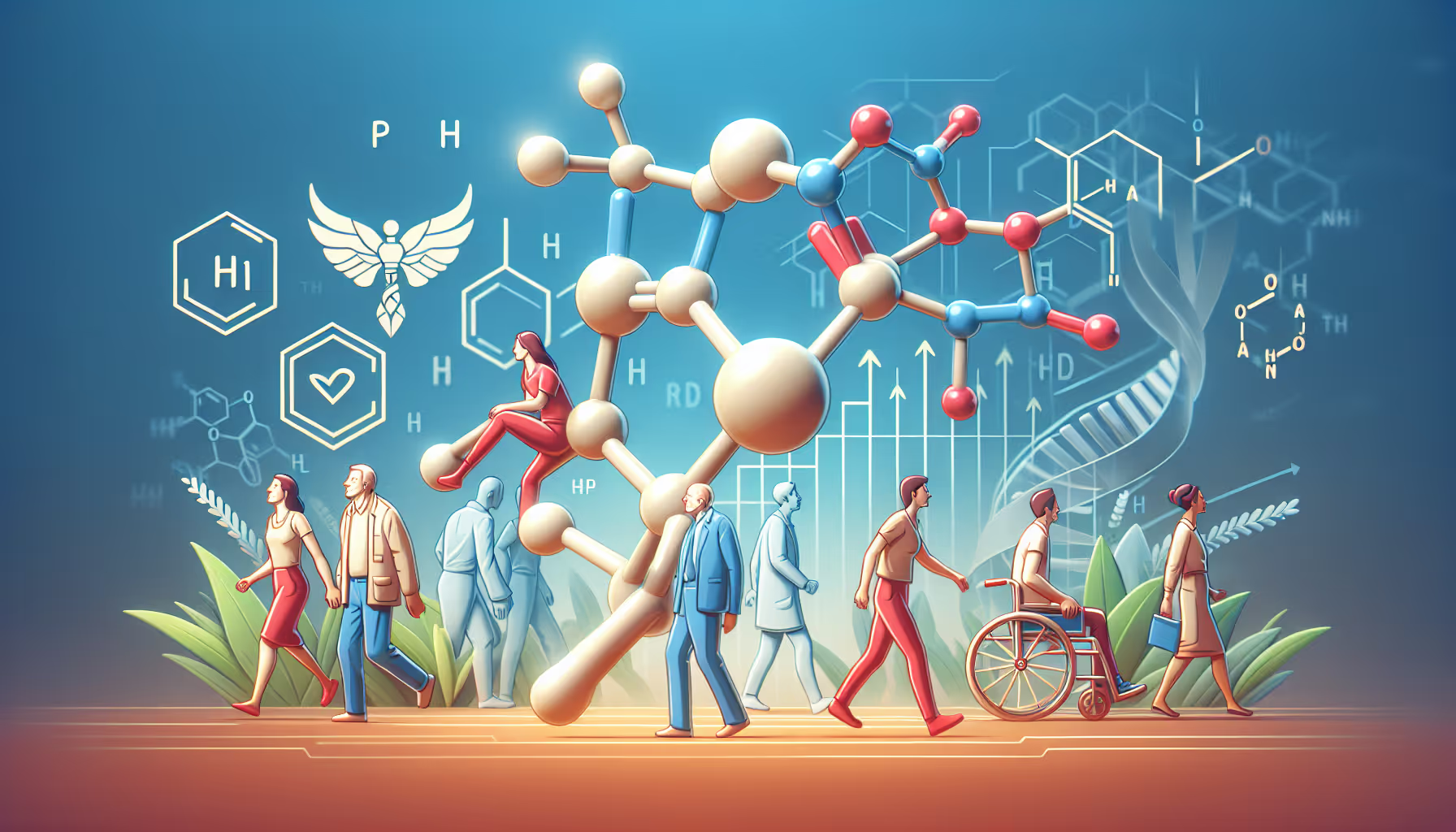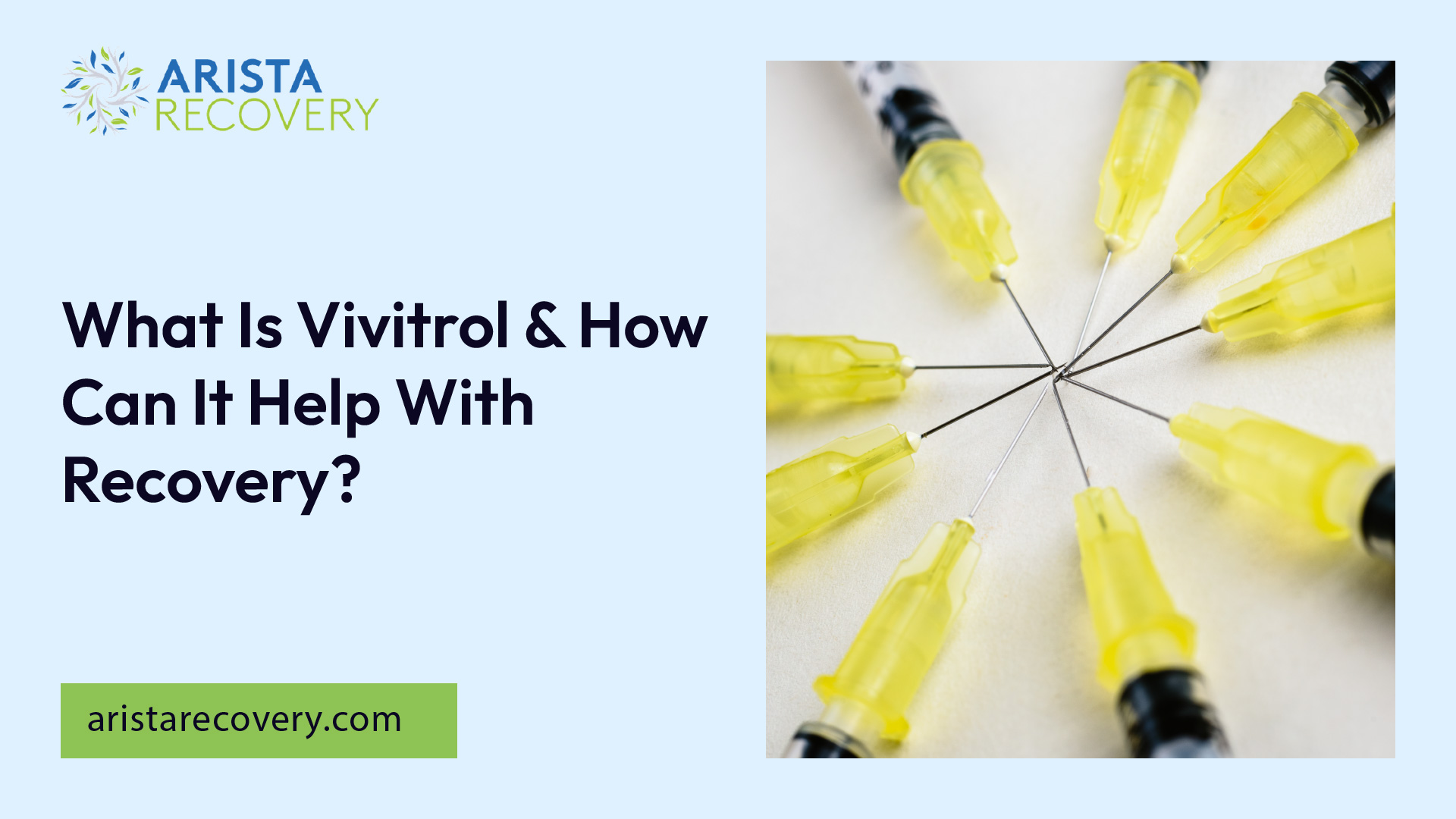What Is Vivitrol & How Can It Help With Recovery?

Understanding Vivitrol
When talking about addiction recovery, one term that often surfaces is Vivitrol. But what is Vivitrol and how can it help with recovery?

Introduction to Vivitrol
Vivitrol is an injectable form of naltrexone that has been approved by the FDA to help treat both alcohol addiction and opioid dependence. It's designed to help individuals maintain sobriety by reducing cravings, and is most effective when used as part of a comprehensive treatment program. This treatment plan often includes therapy and counseling, which helps to reduce the risk of relapse and maintain abstinence in recovery.
Mechanism of Action
Vivitrol works by blocking opioid receptors in the brain. The active ingredient in Vivitrol, naltrexone, attaches itself to these receptors, preventing other opioids from interacting with them. This action helps to control and reduce cravings for both alcohol and opioids.
In terms of alcohol cravings, Vivitrol helps regulate brain function. By binding to and blocking the opioid receptors, Vivitrol tricks the brain into reducing cravings for alcohol.
When combined with behavioral therapy and counseling, Vivitrol shows a 90% success rate in helping people stay in treatment and maintain sobriety.
In summary, Vivitrol plays a key role in treating alcohol addiction and opioid dependence by reducing cravings and blocking the effects of opioids. It's a vital tool in the recovery toolkit, but it's important to remember that it's most effective when used in conjunction with a comprehensive treatment program, including therapy and counseling.
Effectiveness of Vivitrol
In the context of recovery, it's crucial to understand the effectiveness of Vivitrol and how it can aid in the process. We'll explore its success rate when combined with counseling and the duration of its effects.
Success Rate with Counseling
Vivitrol has demonstrated a high degree of effectiveness when combined with counseling and behavioral therapy. According to Eleanor Health, this approach shows a 90% success rate in helping people stay in treatment and maintain sobriety.
In a pivotal trial, patients undergoing treatment for opioid dependence with Vivitrol and counseling demonstrated a 36% maintenance of complete abstinence from opioids during weeks 5-24, compared to 23% with placebo and counseling. Furthermore, a significantly higher percentage of subjects (53%) in the Vivitrol group remained in the study compared to the placebo group (38%).
Duration of Effects
The duration of Vivitrol's effects also plays a pivotal role in its effectiveness. Patients who received Vivitrol had a lower number of subjects (1 patient) testing positive in a naloxone challenge at the end of 24 weeks compared to those on placebo (17 patients) [3].
Moreover, Vivitrol has been shown to help individuals complete their treatment and reduce relapse rates. A study revealed that 36% of patients continued their full treatment course with Vivitrol compared to 23% in the placebo group. Another study showed a relapse rate of 43% for patients receiving Vivitrol compared to 64% in those who did not.
The evidence suggests that Vivitrol can be a highly effective component of a comprehensive recovery plan when combined with counseling and behavioral therapy. Its potential to maintain sobriety over a considerable duration contributes to its efficacy in the recovery process.
Side Effects and Risks
Like all medications, Vivitrol comes with potential side effects and risks. While it can play an essential role in recovery, it's critical to understand these factors to manage them effectively.
Common Side Effects
For many, Vivitrol is generally well-tolerated. However, some individuals may experience side effects. These commonly include reactions at the injection site, such as redness, swelling, pain, or even a small bump. While these reactions are typically mild and go away on their own, it's important to monitor the injection site and report any persistent or worsening symptoms to a healthcare provider.
Other common side effects may include:
- Nausea or vomiting
- Headache
- Dizziness or fainting
- Fatigue
- Decreased appetite
- Cold symptoms, such as sneezing, sore throat, or runny nose
These side effects are typically mild and go away on their own. However, if they persist or worsen, it's important to consult a healthcare provider.
Severe Reactions
In addition to the common side effects, Vivitrol has the potential to cause severe reactions. These include sudden opioid withdrawal, liver damage, hepatitis, and severe reactions at the injection site.
Patients under Vivitrol treatment for alcohol dependence who also use or are addicted to opioid-containing medicines or opioid street drugs should inform their healthcare provider to avoid sudden opioid withdrawal symptoms when starting Vivitrol treatment.
Patients are advised to seek emergency medical help in cases of known or suspected opioid overdose, even if naloxone is administered.
It's crucial for anyone considering Vivitrol treatment to discuss these potential risks with their healthcare provider and weigh them against the potential benefits in their recovery journey.
Administration and Compliance
The administration of Vivitrol and adherence to its regimen play a crucial role in the medication's effectiveness in aiding recovery. Understanding how Vivitrol is administered and the importance of the treatment regimen can provide insight into how this medication can assist in recovery.
Monthly Injection
Vivitrol is a prescription injectable medicine that is administered once every 28-30 days in a medical office Woburn Wellness. This monthly injection schedule eliminates the need to adhere to a daily medication schedule, making it a preferable option for those struggling with substance use disorders or mental health conditions Woburn Wellness. However, it is essential to stop taking opioids before starting Vivitrol for it to be effective VIVITROL.
Treatment Regimen
Vivitrol is most effective when used as part of an alcohol or drug recovery program that includes counseling. This approach, known as medication-assisted treatment (MAT), combines behavioral therapy and medications to treat substance use disorders Woburn Wellness.
However, Vivitrol may not work for everyone, and its safety and effectiveness in children are not known VIVITROL. Therefore, it's crucial to keep your healthcare provider informed about all the medicines you take, especially if you are using any opioid-containing medicines for pain, cough, colds, or diarrhea VIVITROL.
Following the prescribed treatment regimen and adhering to the monthly injection schedule are key to maximizing the benefits of Vivitrol. Regular communication with your healthcare provider is also essential to monitor progress and adjust the treatment plan as needed. By doing so, Vivitrol can play a significant role in the path towards recovery.
Benefits of Vivitrol
As individuals navigate their path to recovery, having effective support systems can make a substantial difference. One such support is Vivitrol, a medication that can aid in the process. Understanding what Vivitrol is and how it can help with recovery can offer hope and guidance to those on their journey to long-term sobriety.
Non-Addictive Properties
One of the key benefits of Vivitrol is its non-addictive properties. Vivitrol is the only FDA-approved medication for the treatment of opioid use disorder that is not habit-forming. It does not provide euphoric feelings and can be stopped without experiencing withdrawal symptoms [2]. This is a significant advantage over other treatments like Suboxone and Methadone, which have associated withdrawal symptoms.
Moreover, Vivitrol is administered once every 28-30 days in a medical office. This eliminates the need to adhere to a daily medication schedule, making it a preferable option for those struggling with substance use disorders or mental health conditions.
Long-Term Sobriety
Vivitrol is not just about managing symptoms or reducing cravings. It's about paving the way for long-term sobriety. The main goal of medication-assisted treatment with Vivitrol is total abstinence, as individuals cannot get high or drunk while taking it. This discourages temptation and cravings for opioids or alcohol, preparing individuals for long-term sobriety.
Importantly, Vivitrol has been proven effective in helping individuals complete treatment and reduce relapse rates. A study showed that 36% of patients continued their full treatment course with Vivitrol compared to 23% in the placebo group. Another study revealed a relapse rate of 43% for patients receiving Vivitrol compared to 64% in those who did not.
These benefits highlight the potential of Vivitrol in supporting recovery from substance use disorders. With its non-addictive properties and focus on long-term sobriety, Vivitrol can offer a viable treatment option for those committed to overcoming their addiction. As with any treatment, it's essential to consult with a healthcare professional to discuss potential risks and benefits.
Considerations and Safety
When considering Vivitrol as part of a recovery program, there are numerous precautions and safety considerations to factor in. These details are crucial to understanding the benefits and potential risks of Vivitrol as a tool for recovery.
Precautions Before Treatment
Before starting Vivitrol, it is crucial to inform your healthcare provider about all the medicines you take, especially if you are using any opioid-containing medicines for pain, cough, colds, or diarrhea. If you are being treated for alcohol dependence but also use or are addicted to opioid-containing medicines or street drugs, it is essential to disclose this information before Vivitrol treatment to avoid sudden opioid withdrawal symptoms.
It is also essential to stop taking opioids before starting Vivitrol for it to be effective. Vivitrol may not be effective for everyone, and its safety and effectiveness in children are not known.
Vivitrol is associated with significant risks, including the risk of opioid overdose, severe reactions at the injection site, sudden opioid withdrawal, liver damage, or hepatitis. Patients are advised to talk to their healthcare provider about naloxone, a medication for emergency opioid overdose treatment [5].
Co-Pay Savings Program
While receiving Vivitrol, it is advised not to drive, operate machinery, or engage in other dangerous activities until understanding how Vivitrol affects you, as it may cause dizziness and sleepiness [6]. Common side effects of Vivitrol include nausea, sleepiness, headache, dizziness, vomiting, decreased appetite, painful joints, muscle cramps, cold symptoms, trouble sleeping, and toothache. Individuals are encouraged to report any side effects to the FDA [5].
Although Vivitrol is a prescription-based medication, there are co-pay savings programs available to help make the treatment more affordable. It's advisable to discuss these options with your healthcare provider or pharmacist to understand what financial assistance may be available. Remember, the goal is to make recovery accessible and manageable, and understanding all the facets of the treatment options is a critical step in the journey.
References
[1]: https://www.eleanorhealth.com/blog/what-does-vivitrol-do
[2]: https://www.woburnaddictiontreatment.com/benefits-of-vivitrol/
[3]: https://www.vivitrolhcp.com/opioid-dependence-pivotal-study
[4]: https://www.cwcrecovery.com/blog/using-vivitrol-in-mat-8-benefits-of-getting-the-vivitrol-shot/
[5]: https://www.vivitrol.com/
[6]: https://www.vivitrol.com/opioid-dependence/important-safety-information
You’re not alone in this.
When mental health challenges and addiction intersect, it can feel isolating. At Arista, we offer compassionate, evidence-based, and trauma-informed care to help you heal, grow, and move forward.
You’re not alone in this.
When mental health challenges and addiction intersect, it can feel isolating. At Arista, we offer compassionate, evidence-based, and trauma-informed care to help you heal, grow, and move forward.
Support that moves with you.
You’ve taken a brave first step. At Arista Recovery, we’re here to help you continue with best-in-class care designed for long-term healing and support.
.webp)






